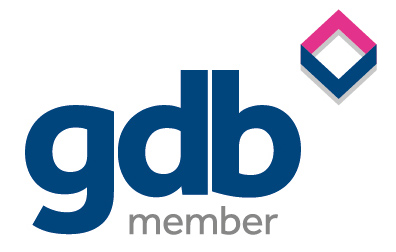Harvey John
Unit 2 Ferry Wharf
Hove Enterprise Centre
Basin Road North
Portslade, East Sussex
BN41 1BD
As another eventful quarter comes to an end – and the tax market battles through strong political and economic headwinds – we are now, it seems, facing gale force winds when embarking on the final three months of the year.
The indirect tax and customs market has always remained relatively stubborn in challenging times but that doesn’t mean we’re ready to start making predictions with everything that’s taken place…
On the one hand, the UK’s new Conservative government is now navigating through even more economic uncertainty following the market reaction to Kwasi Kwartend’s mini-budget, which saw the most radical tax changes in decades. At the time of writing, we’ve just seen the IMF make precautionary statements following the pound hitting an all time low and now we wait in anticipation as to how the Bank of England will respond to yet another chapter of the ongoing cost-of-living-crisis. On the other hand, more ‘uncertainty’ (is this the most used word of the 20s?) lingers in Europe as the market reacts to a new Italian government, the rising tide of inflation, an ongoing energy crisis, and, of course, shockwaves of the war in Ukraine.
What does this all mean for recruitment?
Such turbulence has kept the topic of salaries high on the agenda. Inflation has been a primary concern for candidates but, with a weakening pound and euro, we suspect that businesses will face even more pressure to reassess their remuneration packages – including those that have already ‘responded’ with inflationary pay rises.
Economic conditions aside, the recruitment market has been struggling to come to terms with the reduced candidate flow that we’ve been seeing over the last six months and this, too, is having a seismic impact on salaries. Much of this has been due to firms vastly improving their retention methods. With that in mind, a key ‘push factor’ for job seekers this quarter has overwhelmingly been those who are looking to improve their financial circumstances. This is welcome news to those businesses who are comfortable in their renewed packages but it’s hiring managers who have their hands tied are feeling the pinch.
Hiring companies must also now consider that, as economic conditions become increasingly fragile, we’re likely to see less candidates ‘actively’ exploring the market for new roles due to prioritising their job security.
The issue of reduced candidate flow is a simple case of supply and demand. With the supply of candidates decreasing, it’s only natural that remuneration packages will increase (providing the demand remains steady).
How has job activity looked in Quarter 3?
For the most part, hiring activity has remained high; both indirect tax & customs professionals can take some solace that there is still a good degree of ‘choice’ in the market.
With that being said, the overall picture across the summer has been extremely mixed and it’s left a degree of ambiguity as to what direction we’ll see throughout October to December.
Figure 1
Figure 2
Here are the snapshots:
- Recruitment in professional services remains extremely high and, while we don’t track job activity here in the same way we do with in-house hiring, it feels that the volume has been creeping up in the UK & Europe. By and large, the demand has been for Managers and Senior Managers.
- Big 4 and Top Tier firms have been signalling far more recruitment is yet to come within the indirect tax arena (and tax as a whole) and we’re seeing many roles in practice being taken up to non-traditional profiles, implying that these firms are really opening up on who they consider.
- Unlike professional services, in-house recruitment across the UK, BENELUX, & DACH markets has declined over the summer. This leaves us to question how this will play out over the rest of the year. Figures 1 & 2 present the fall in new vacancies in both the indirect tax and customs arena, with the most notable variance seen in the former.
- Figures 1 & 2 also indicate that recruitment has been overwhelmingly dominant in the UK&I – a theme of the last year.
- The eagle eyed amongst you will also note that in-house customs jobs across the UK & Europe actually outperformed indirect tax vacancies. This will no doubt be welcome news to the customs & trade compliance community.
- Customs technology roles have risen by 28.6% since last quarter.
- Within customs, 54.4% of recorded vacancies were at the Analyst / Senior Analyst grade.
- Tax technology made up 4.9% of all indirect tax roles, excluding Amazon who have become a powerhouse for in-house tax tech roles and registered almost the same volume of roles internally!
- Across the indirect tax market, the demand for Managers was the most dominant grade, comprising 37.5% of the market, followed by Analysts at 23.6%.
- Perhaps the most encouraging news that we’ve seen this quarter is the surge in senior level roles at the Director / Head of’ grades. 8.2% of indirect tax vacancies were at this level whilst 3.8% was seen in the customs & trade market. Many senior professionals will know that this part of the market has been extremely dry for some time now, so the volume of roles seen this quarter is extremely encouraging and makes us feel quite bullish for lies ahead. We should note, though, that activity at this level has been UK dominated.
- The grading trends across indirect tax have seemingly balanced out this quarter, thanks to an increase in volume at the senior grades and a decrease in volume.
Conclusion
As we are seemingly adding to a litany of disastrous economic and political events, the task of predicting what next quarter will look like is a challenging one.
What we can say is that recruitment in professional services appears to be showing no signs of slowing down, though the outlook for in-house roles is that the market is correcting from a surge in activity earlier this year.
Salaries and job security will still be number one considerations for candidates, so hiring managers must consider how they sell their opportunities to the market.
For recruitment in general, this quarter we’ve seen the successful pilot of the 4 day week which has resulted in far more candidates requesting 4 day work weeks. Is this something we’ll see more of next quarter, moving into 2023?
–
Alex Mann is a Director at Harvey John
For expert advice on how to get the best out of your tax career, whether in a professional services firm or in-house, contact us today.
Author

From boutiques to the Big 4, and start-ups to multinational corporations, Alex manages a diverse portfolio of clients worldwide which has enabled him to develop a vast global network of indirect tax and tax technology professionals in 40+ countries.







